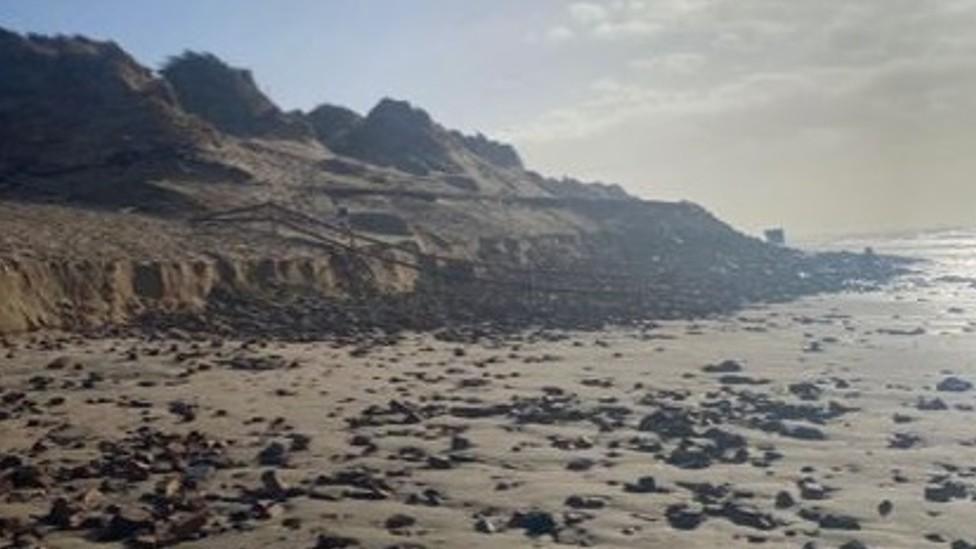Invasive plant removed from Sefton dunes to protect wildlife
- Published

Protected species living in the dunes need bare soil to survive, Natural England says
Work to remove an invasive plant on Sefton's coastline has begun in a bid to protect sand dunes which are home to rare wildlife.
Rapid growth of the Japanese Rose, covering an area the size of 12 football pitches, is threatening the scientifically-important dune system, experts said.
The dunes are home to the protected natterjack toad and sand lizards.
Natalie Coffey from Natural England said they need "bare soil" to survive.
Gordon White from Green Sefton said the rapid growth of the invasive Japanese Rose was destroying the natural habitat.
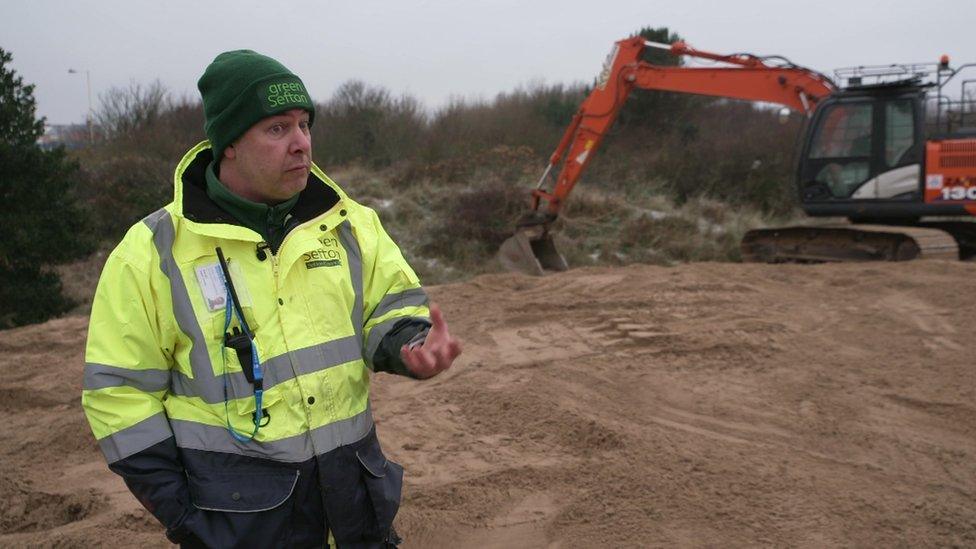
Gordon White from Green Sefton says the Japanese Rose "out-competes other species"
"It's growing very quickly. It out-competes other species, it covers the ground. It shades the ground," he said.
"Getting rid of this particular species is going to improve basically six hectares of what should be pristine first class sand dune habitat that is protected at the highest level for nature conservation."
The Sefton coastline, which stretches 20km (approximately 12.5m) between Liverpool and Southport, is a protected Site of Special Scientific Interest and a Special Area of Conservation.
Ms Coffey added: "Traditionally we have planted marram grass. We have stabilised our dunes because that's what we thought our dunes systems needed.
"But actually the species that live here, they need that bare soil to survive and our dunes have become over stabilised."
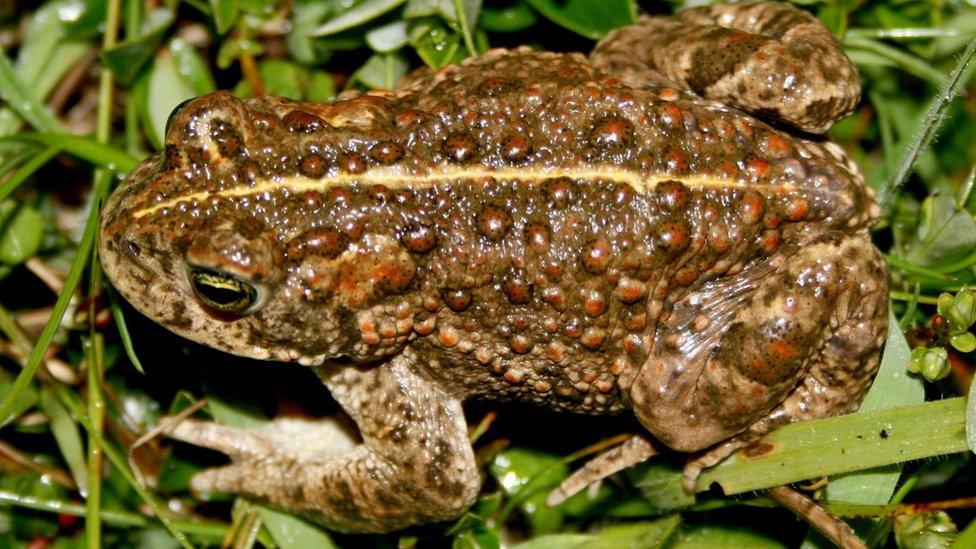
The protected natterjack toad is native to sandy and heathland areas of Northern Europe
She said: "There's too much scrub, too much marram, there's not enough bare soil for them.
"What we're hoping to do is restore natural processes so its going to take us work to get there but hopefully in the future the sand dunes will be able to continue without as much management from us."
Work to remove the area taken over by the plant is expected to be completed by the end of January.

Why not follow BBC North West on Facebook, external, Twitter, external and Instagram, external? You can also send story ideas to northwest.newsonline@bbc.co.uk
Related topics
- Published9 December 2022
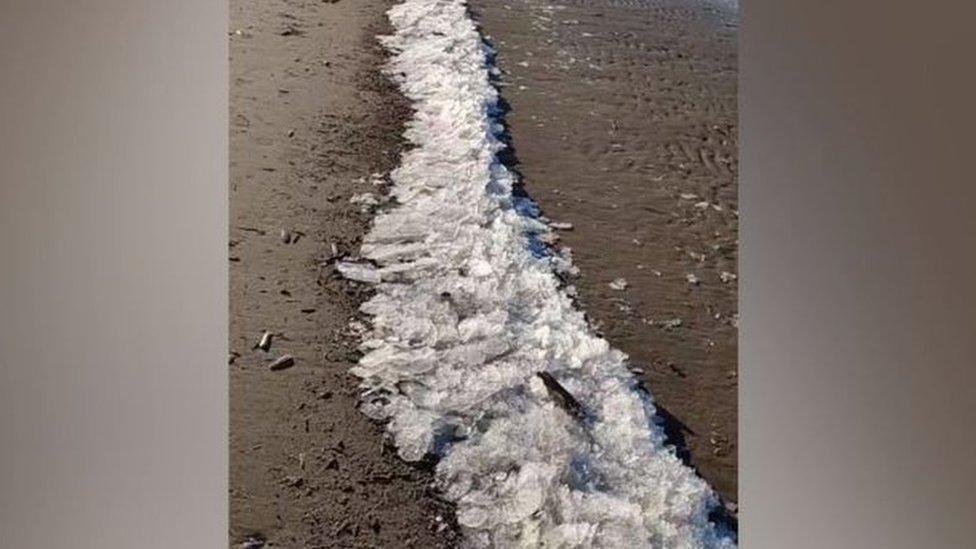
- Published24 November 2022
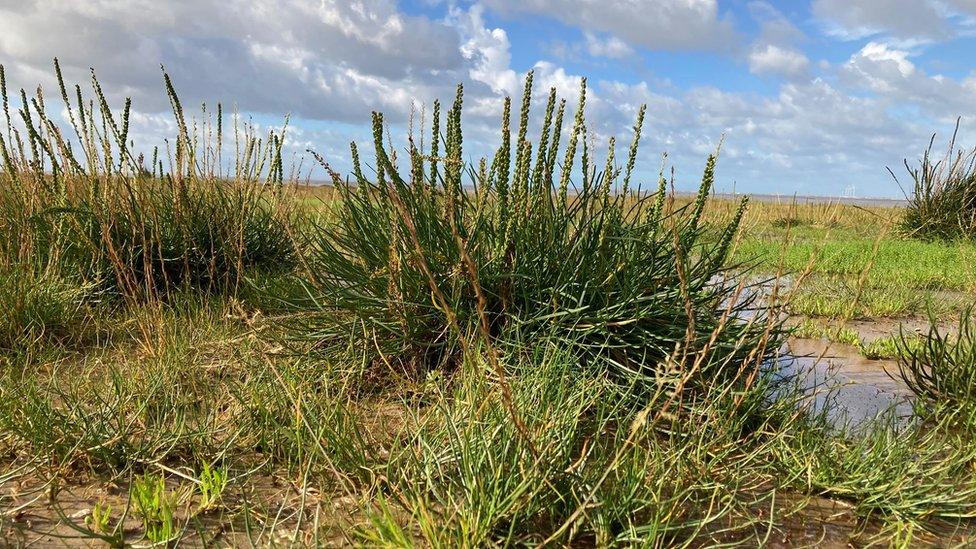
- Published22 February 2022
